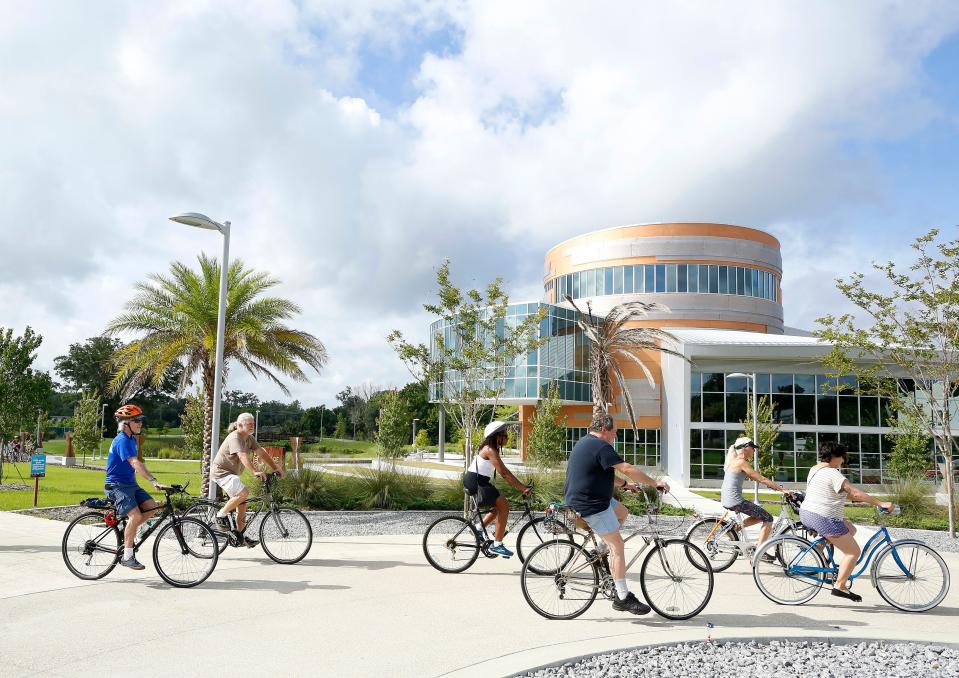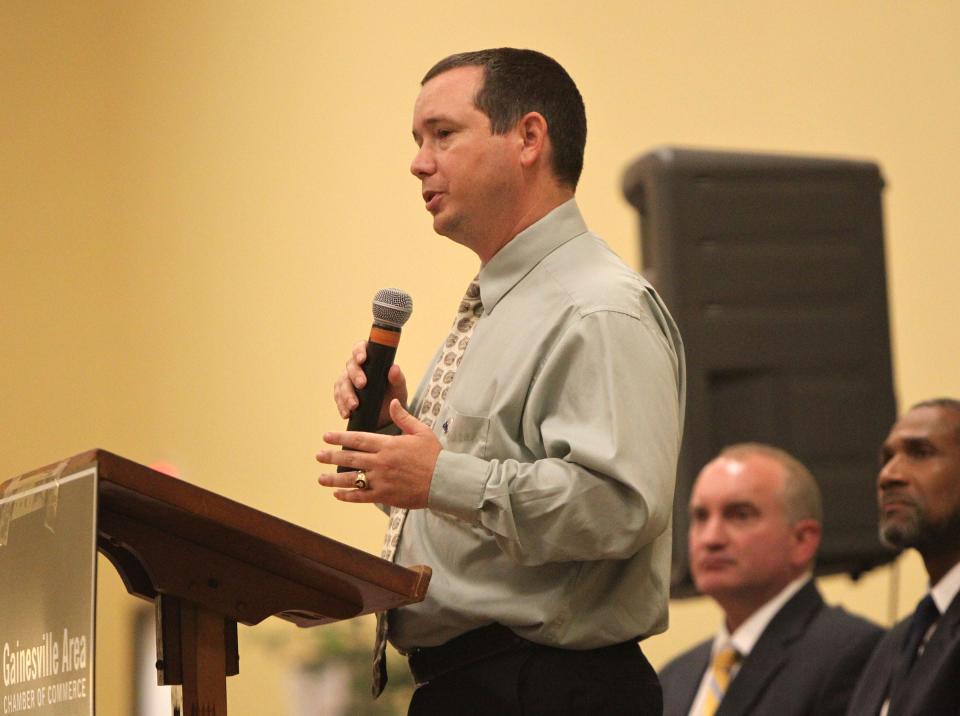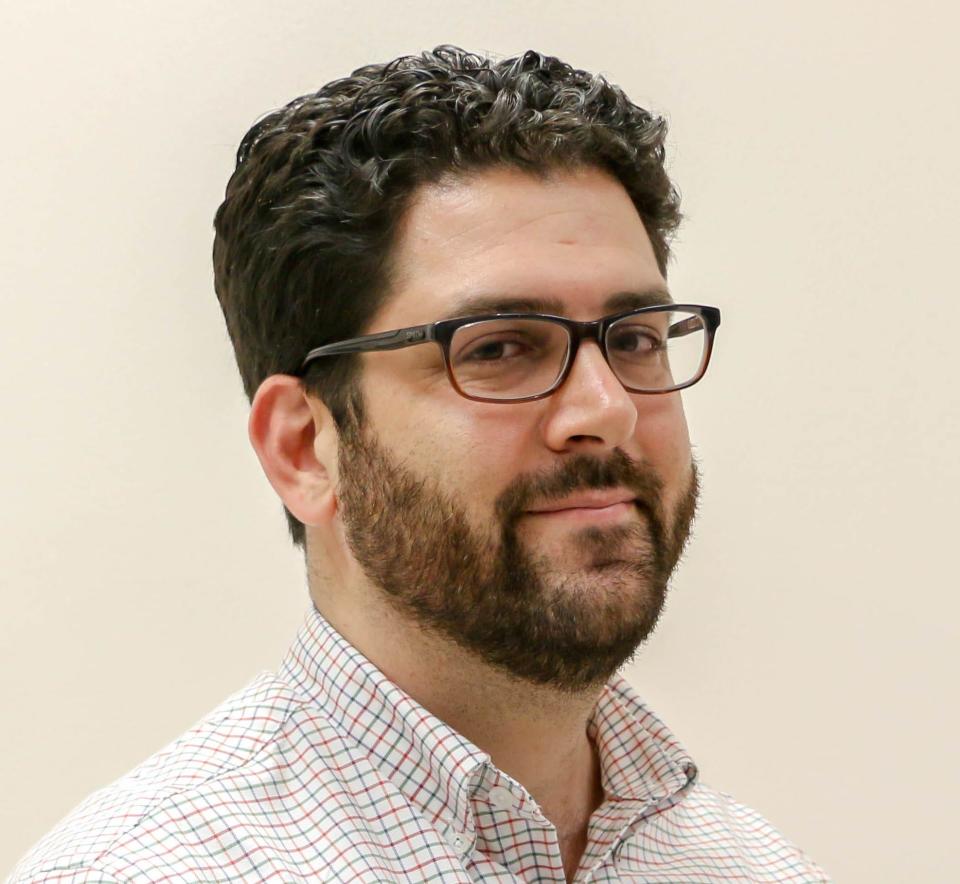Local groups need to work together to help Gainesville thrive
Sometimes an outsider’s view of Gainesville helps bring clarity to the problems we face as a community and how to work together to solve them.
Last month, the Gainesville Thriving Project released a report on surveys conducted with more than 100 local leaders. The report revealed some harsh judgments on the state of our city, including criticism of a lack of coordination between community institutions.
“Gainesville lacks common vision and a common purpose,” one respondent said.
More from Nathan Crabbe:
Fight back against groups banning books in Florida, read challenged titles
Don't ignore the 16,000 Gainesville households who struggle to afford housing
UF's state-funded rise in rankings now at risk due to DeSantis, Legislature
But the project also identified reasons for optimism. Ty Buckman, one of the researchers working on the project, told a recent meeting of The Sun’s community advisory board that it was encouraging to see that Gainesville’s leaders were interested in working with one another on solving community-wide problems.
“There was a hunger for that kind of collaboration,” Buckman said.
The project was coordinated by the Thriving Cities Lab at the University of Virginia’s Institute for Advanced Studies in Culture, which Buckman directs, and included researchers from other institutions across the county as well. The Community Foundation of North Central Florida funded the project’s first phase and an upcoming second phase that is launching in September, while working to secure community partners for a third phase.
The second phase is supposed to bring Gainesville community members together to accomplish a common goal, working on a project that allows trust to be built among them. The report cited Depot Park as an example of how that kind of collaboration can be successful, with the proposed Sweetwater Branch Greenway identified as a current possibility that would generate similarly broad support.

The connections and trust developed in getting that project done would then be used in the third phase to help institute a city-wide plan for addressing one of the more “wicked problems” facing our community, as the report put it. Improving third-grade reading scores or planning and executing a comprehensive approach to the affordable housing crisis were named as possibilities.
Addressing these problems requires people to get out of their silos, working with other groups to identify each other's strengths as well as areas of duplication. As Buckman told The Sun’s community advisory board, “In the research that we did, we were surprised that there were allies that hadn’t met yet.”
Board members expressed hope about local institutions taking a more collaborative approach to solving community-wide problems. Matt Surrency, former Hawthorne mayor and past president of the Florida League of Cities, said the League has seen success with regional compacts that bring together different cities on such issues as addressing the impacts of climate change.

But board members also expressed skepticism, including about the University of Florida's role in a local effort. Carol Richardson, coordinator for Gainesville’s A. Quinn Jones Museum and Cultural Center, said there is interest from local residents in UF helping neighborhoods affected by gentrification around campus — but also skepticism about UF treating them like a research project.
“That’s the sentiment — to stop treating the community like they’re a project … and to just give something back,” Richardson said.
Changing leadership offers the opportunity for a different approach. UF will hire a new president as soon as the upcoming fall semester. Voters will decide on four of the five members of the Alachua County School Board and four of the seven members of the Gainesville City Commission in the upcoming election.
Improving the low rates of third-grade reading scores in Alachua County Public Schools has long been identified as needing an all-hands-on-deck approach. No matter what happens with the Gainesville Thriving Project, the leaders of our major institutions and nonprofits must put aside their egos and collaborate on developing lasting solutions to the problem.

It shouldn’t require out-of-state researchers to get these groups together. If our community can’t even come together to ensure Gainesville's youngest residents are able to read, then we really aren’t a thriving community.
Nathan Crabbe is The Sun's opinion and engagement editor. Contact him at nathan.crabbe@gvillesun.com or 352-374-5075. Follow him on social media at twitter.com/nathancrabbe and facebook.com/nathancrabbe.
Join the conversation
Share your opinions by sending a letter to the editor (up to 200 words) to letters@gainesville.com. Letters must include the writer's full name and city of residence. Additional guidelines for submitting letters and longer guest columns can be found at bit.ly/sunopinionguidelines.
Journalism matters. Your support matters.
Get a digital subscription to the Gainesville Sun. Includes must-see content on Gainesville.com and Gatorsports.com, breaking news and updates on all your devices, and access to the eEdition. Visit www.gainesville.com/subscribenow to sign up.
This article originally appeared on The Gainesville Sun: Nathan Crabbe: Work together to help Gainesville thrive

